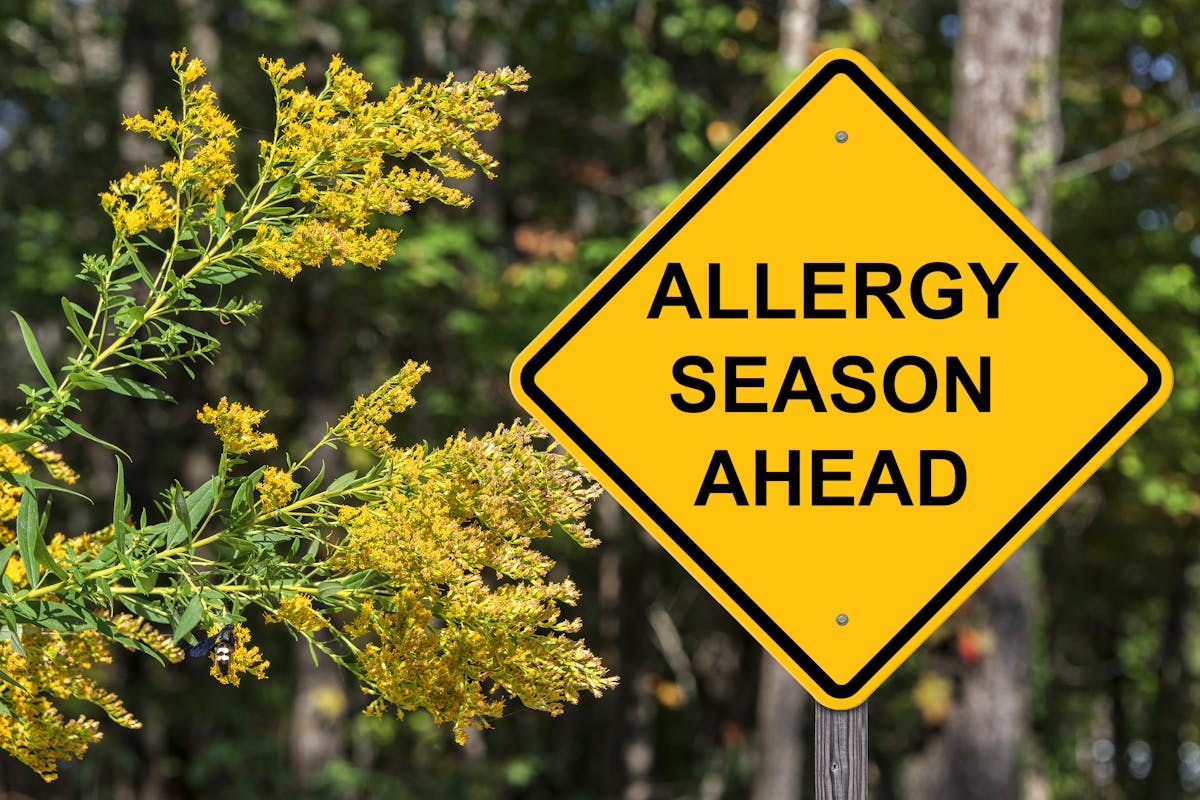Spring Allergy Safety Tips for Older Adults

Watery eyes, sneezing, sinus congestion, coughing, and a scratchy nose can all be signs of seasonal allergies. Depending on where you live, these symptoms might be caused by the flowering trees or pollen-filled flowers that commonly bloom in the spring. These types of allergies are uncomfortable for people of all ages, but they can be especially tough for seniors.
That’s because older adults often have other medical conditions that can be exacerbated by spring allergies, such as chronic obstructive pulmonary disease (COPD), asthma, and even gastroesophageal reflux disease (GERD). These health issues can also limit what kinds of medications it’s safe to take to reduce symptoms.
As we head into peak spring allergy season, here’s what seniors and family caregivers should know.
Spring Allergies’ Impact on Older Adults
Allergies are the body’s reaction to the immune system becoming sensitized to something in the environment. Experts say allergies can be problematic for seniors for a variety of reasons. As previously mentioned, one leading concern is that allergy symptoms can cause other serious, chronic illnesses to flare or worsen. For example, a person who has COPD might find their nasal congestion worsens and their shortness of breath, which they’re already struggling to manage, becomes more pronounced.
Another worry is the use of antihistamines. These are over-the-counter medications that people often turn to in an effort to self-treat allergies. While many are good at reducing the uncomfortable symptoms associated with pollen and other allergens, they aren’t without side effects. A primary concern is that antihistamines often cause an increase in blood pressure. For those who have cardiac disease, this can be especially dangerous.
What Are the Most Common Spring and Summer Triggers?
The first step in managing seasonal allergies is to identify the triggers. Here are a few that often make their appearance during spring and summer months:
- Nature: Pollen, mold, grass, or dust are often the culprits, and they can be tough to avoid. If you suspect these might be causing your symptoms, talk with your primary care doctor. You might need some allergy testing to pinpoint which ones are the problem.
- Pool chemicals: Don’t overlook triggers living in your swimming pool. Not only do pollen and other elements of nature end up on the surface or cover of your pool, there’s also chlorine. It can be another trigger, especially if you’re a frequent swimmer and your primary symptoms are red, scratchy eyes.
- Smoke: Summer barbecues and bonfires are popular, but the smoke they generate can be irritating. Be mindful of this potential cause when you experience a flare.
- Bites: Insect bites and stings are more than just an annoyance for many people. Allergies can develop at any age, especially as you grow older. This is often due to decreased immunity, which is more common with aging.
While allergy symptoms can occur year-round, they often peak during warmer weather. Fortunately, there are ways you might be able to manage allergies without medication.
Natural Remedies for Spring Allergies
- Limit time outdoors when pollen is high: When peak allergy season arrives, it might be a good idea to try to limit how much time you spend outdoors. When you do head outside, take a few precautionary steps. Wearing a mask that covers your mouth and nose offers a layer of protection. Another tip to reduce exposure to allergens is to take your shoes off and change your clothes in the garage or mud room before coming into the house. This will not only lower the amount of pollen you breathe in but also prevent pollen from making its way into the home.
- Control your home environment: When the pollen count is high or when it’s windy outdoors, keep your windows and doors closed. Doing so will help limit the amount of pollen and dust that gets inside. Instead, use your air conditioner and ceiling fans to cool the house. The same holds true when you are traveling in a car. While the fresh air might feel good, it also exposes you to more allergens.
- Monitor and work around the pollen count: One final tip is to monitor your local pollen count. Watch the news to see if the meteorologist reporting the weather includes an allergy report. If not, The Weather Channel has an Allergy Tracker. You can use your zip code to track allergens predicted to be high in your area for the next 15 days. Use the forecast to better plan picnics and other outdoor activities.
If none of the remedies listed above help you control your allergy symptoms, call your primary care physician. They might want to order further testing or have other interventions they can order or prescribe.
Follow the Life Protect 24/7 Blog
If you are interested in topics related to health, wellness, aging, and caregiving, we encourage you to bookmark this blog and visit often. We publish new articles each week to help visitors learn more and stay on top of the latest trends!